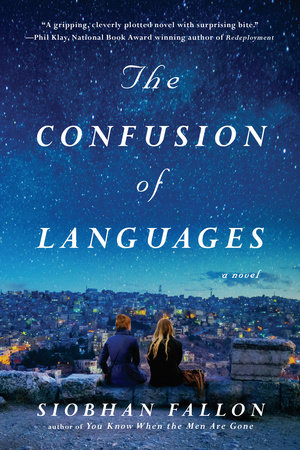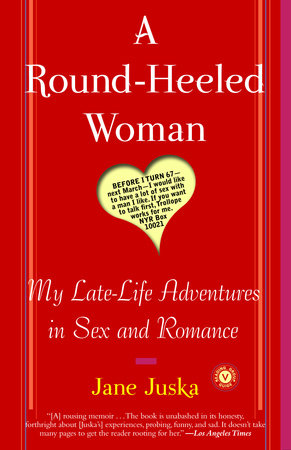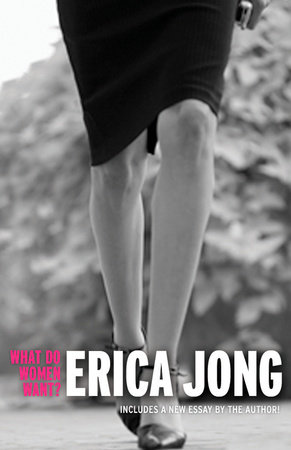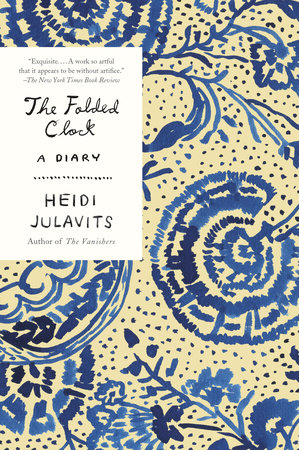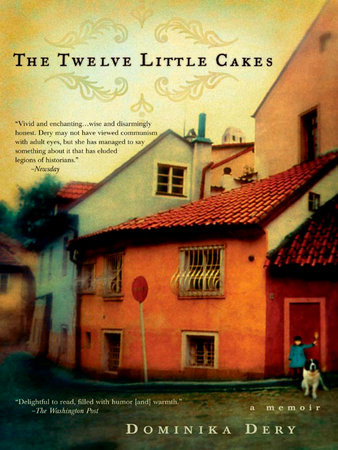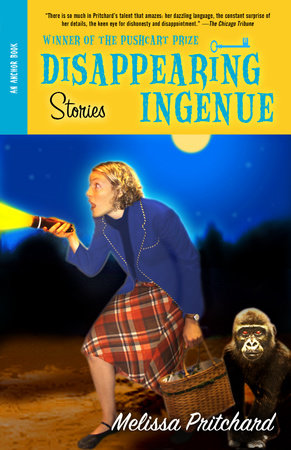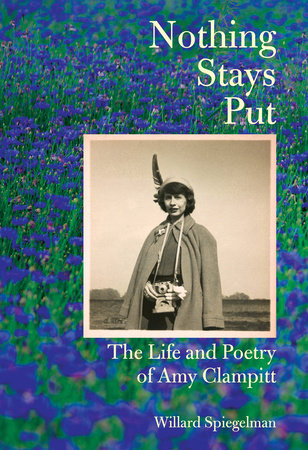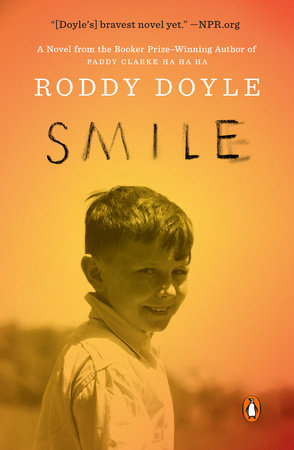The Confusion of Languages is your debut novel. How was writing this story different than writing your story collection You Know When the Men Are Gone?
The Confusion of Languages’ genesis was a short story I began writing in May 2011. By the time I finished, it was sixty pages—that’s not really a “short” story at all. Then it grew into a collection of interconnected stories that spanned about two years, from before Margaret and Crick even met. This collection moved from California to Oman to Jordan. I have early drafts where each story/chapter is told from the point of view of a different character; for example, Crick would have his say, then it would go to Margaret, then it would go to Dan, then Cassie, onward to other characters who aren’t even in the novel anymore.
But I soon realized that the short story–collection model of jumping from character to character wasn’t giving me enough space to delve deeply enough into the intimate thoughts of Margaret and Cassie, and it was their intertwined story that fascinated me the most. So I’d say The Confusion of Languages is an evolution of short stories into a novel. Ironically, the actual novel you have in your hands right now is quite close to the first sixty-page short story version. I wish I had figured that out in 2012 and saved myself a couple of years’ work.
What inspired you to write this novel?
It’s impossible to narrow it down to one thing. I think of writing as a huge, messy path that you slowly and blindly navigate. Something—some hunger or a streak of irrational stubbornness—drives you to the end of that road no matter what. You trip, you kick rocks out of your way, you climb a tree or two in hopes of seeing how much longer you have to go, you get lost, you turn back, then turn around again, you just doggedly keep going until you reach a destination you can live with and that you hope readers will enjoy.
There were a few ideas I wanted to explore while I was flailing all over the place. Expats abroad are always recounting the crazy things that happen in the country they are currently residing in. Cocktail parties are full of these anecdotes, like how an Italian man put his hand on a covered female police officer’s arm in a mall in Dubai when asking for directions and was deported for it. Or a how an American woman in Abu Dhabi couldn’t get a cell phone without the permission of her husband (that actually happened to me). And it’s all very funny to listen, too. It’s easy to think our Western ways are always the right way and to be indignant at the local response. I wanted to write about a well-intentioned American woman caught in a misunderstanding that spirals out of control, to show how these events, howeveraccidental and amusing they might seem, can involve severe repercussions.
I’m also always aware of my characters being human and flawed, and I like to tease out ways good and decent people manage to do rotten things that hurt the people they care about. And the character who tries to be the most decent, Margaret, in trying to do what she thinks is right, nearly destroys a man. Sometimes a small, unthinking action has the power to haunt more than any deliberate cruelty.
Why did you choose to set this story in Amman, Jordan? Did you ever consider setting it elsewhere?
I lived in Jordan with my family in 2011. Like Margaret, my family and I arrived just as the Arab Spring was taking hold across the Middle East. There was so much going on, so much uncertainty and tension, but also so much hope. The whole world seemed to be watching Egypt’s Tahrir Square and cheering on a people who were trying to shape their own destiny. And in 2011, America had been finally winning the war in Iraq; the surge of US soldiers had established a certain level of peace, or at least gotten to a stable enough place for a tentative handover. There was, of course, a genuine desire to see the people of the Middle East reclaim power from dictators, but I also think Americans, from politicians to the taxpayer watching late-night news, desperately wanted to believe our military presence had had a positive effect, that toppling Saddam helped pave the way to the end of Mubarak in Egypt, Qadaffi in Libya, and Ali Abdullah Saleh in Yemen, and that protests across the Middle East would lead to political reform and freedoms for all.
But then the United States pulled out of Iraq, in a much more sudden way than many in the US military thought we should. Now we see ISIS has risen from the ash of America’s departure, and so much has been squandered, so many American soldiers and countless Iraqi civilians have died in vain, not to mention the continued slaughter of innocents in Syria. We see that Egypt has swung back into the control of a military government, Libya is still in the midst of a civil war, and Yemen is a completely failed state.
Jordan, thank goodness, has a much beloved and fairly progressive monarch, King Abdullah, and continues to be stable, but the refugee numbers there from neighboring countries (Syria, Iraq, and Palestine, among others) are critical.
So I wanted that specific and precarious perspective of Jordan, how it is perched between Iraq and Syria. Jordan managed to offer both a front row seat to the Arab Spring unfurling around it, yet was also safe enough that American families continued to live there throughout, rather than being evacuated the way the embassy communities were in Egypt and Tunisia. I also appreciated how Jordan offers a balance of East and West. Cassie can remain cloistered in Abdoun, the ritzy area where all of the embassies are located and the wealthy Jordanians live. You could find coffee shops, a French bakery, and a few nice restaurants in the vicinity when I lived there in 2011. But if you drive across the highway to downtown Amman, or an hour farther toward the smaller towns, you’ll find something very, very different: Beduoin encampments with camels grazing outside, children selling eggs on the side of the road, and makeshift shwarma stands, the “authentic” Middle East that would appeal to a person like Margaret.
All of the above creates the illusion that I made many clear and rational decisions when writing this novel. But to be honest, much like the idea of “inspiration,” I can’t quite describe what makes me write about one location rather than another, why one story line goes electric in my brain and demands I spend years concentrating on it when countless others have been mused over for a few minutes and discarded. People are always giving me ideas or plot suggestions and saying “You should write about this,” or “This story would make you a million bucks,” and heck, I want a million bucks!
But to sit down day after day for years and write about a handful of characters, their traits and mistakes, their homes and back stories and the moments that break them, well, you just love them, and you love your setting, and you love your story no matter how unwieldy it might be. And love is impossible to define or plan or schedule. It grabs you and doesn’t let go until it is done with you. Jordan was exhilarating, all the unknowns, the sweeping history, the contradictions, I couldn’t help but love the country, and though I left it years ago, writing about it let me live there a little while longer, and know it a little better.
Cassie and Margaret are both so real on the page. How did you come up with each of their characters? Are you more like one than the other?
As I mentioned above, this novel has gone through many, many rewrites and transformations. A character who I had to almost complete excise, Karen, (the woman in the photo Margaret finds) was, at one point, the third weightiest voice in the novel. Her role was as large as Cassie and Margaret; the novel opened with her meeting Crick at a Monterey party, she came out to Jordan to visit him, and she originally is the one who goes to the Turkish baths with Margaret. At that stage of writing, Karen was the character most like me. Butthe book was getting unmanageable and everyone was telling me that Karen wasn’t unique enough, her voice was either too similar to Cassie’s, or too similar to Margaret’s.
When I kicked Karen to the curb, I had to really think long and hard about the two remaining female characters, and the details and mannerisms that would define them. And though not all of it was conscious, Margaret was born out of the more naïve and overly optimistic side of me. She embodies all the well-meaning but stupid things I have managed to do in my life. And Cassie took on the other side, the sarcastic and cynical Siobhan, older and maybe wiser but less able to appreciate the small and lovely things life has to offer. Which was sort of terrifying and enormously fun at the same time, being able to skewer myself on the page, or at least different facets, and letting these alter egos play against each other. It was also terrifying to realize how schizophrenic I might be.
You’re known for writing about military families. What draws you to these stories? What influence, if any, does your own connection to the military have on your writing?
I’m part of a military family. My husband has been an officer in the US Army since I met him in 2000. When we got married, I realized how little the rest of us understood military life. Which was part of my motivation for writing my collection of stories, You Know When the Men Are Gone. I naturally draw from my own experiences, and I like exploring themes that seem to touch all of us (how families work, as well as how families fall apart) but I also like to examinecommunities that mainstream America is less familiar with, such as our military communities at home, or our embassy communities abroad.
Margaret and Cassie both have very different assumptions about what is acceptable behavior for Western women in the Middle East and at the US embassy. How realistic are Cassie’s rules? Do you have any advice for American women traveling to or living in the Middle East?
I do tend to think more like Cassie when it comes to the image I want to present here as both an American and a woman. On the one hand, I want to be seen as respecting the culture I live in, but I’m also motivated to dress conservatively in order to not draw undue attention to myself. When I lived in Jordan I tried to cover from ankle to wrist, unless I was in a tourist area, or attending a predominantly Western event, or out with my husband. So I’d wear linen pants and a light cardigan over a T-shirt in the summer if I was headed out to shop, etc. Here in Abu Dhabi, there are more expats and Emirati culture is more accepting of international styles (it’s also much hotter here in the Gulf) so I’ll occasionally wear short-sleeve shirts and summer dresses. But I try to cover my shoulders and arms if I can and oftentimes there are signs outside of the malls or public parks that spell out the dress code and proper behavior, such as no tank tops or no public displays of affection.
To be completely honest, as an American woman raising two young daughters, both of whom have spent a majority of their lives living in the Middle East, I can’t help but be bothered by some of the social expectations put on women and how their adherence to the idea of modesty seems to be different than that of men. According to what I’ve read of Islam, men and women are supposed to uphold similar modes of dress: it is recommended that men also wear loose clothing that covers much of their bodies. So I can’t help but bristle when I see a man in a T-shirt and pair of shorts, or with no shirt at all and a bathing suit at the beach, accompanying a woman who is covered head to toe, in long robes and veil, perhaps with a niqab over her face. And I have had my own awkward moments, when I unthinkingly tried to shake a man’s hand, or smiled at a man in an elevator, and been quickly made aware that some of the social niceties we take for granted in the West made these particular Middle Eastern men very uncomfortable.
But ultimately, I’m the foreigner here. As a guest, it’s my responsibility to abide by the local customs just as I would want visitors to the United States to respect our way of life. Jordan welcomed me and my family, it was a place I called home for a very exciting year, and I ought to honor its traditions and culture.
What kind of research did you do to write The Confusion of Languages?
I always keep a little notebook in my purse and try to jot down the odd thing I see, wherever I might be. Many of the specific images of Jordan in the novel, from the young man in the back of a pickup truck wearing a Jordanian flag as a cape, to the little Bedouin girl in Petra with a Yankees baseball cap over her veil, to the way the sink in the bathroom in my apartment seemed to breathe in and out when you ran the water, to hearing David Gray’s “Babylon” play over and over again in a grocery store, to the travel agency sign that read Titanic: Travel and Tourism, and more than I could possibly list here, were lifted directly from that notebook I kept while living in Jordan.
Otherwise I relied on the guidebooks I used (Lonely Planet’s Jordan), as well as books I bought in Amman (Dr. Muhammad Ali Akhuli’s Women in Islam), and perused the newspaper articles I’d clipped and saved from our time there. I also took an enormous amount of photos to make sure images stayed singed in my mind.
There are two incredible works of nonfiction that informed my writing and that I highly recommend for readers who are curious about the role of women in Islam and the Middle East: Mona Eltahawy’s Headscarves and Hymens: Why the Middle East Needs a Sexual Revolution and Geraldine Brooks’s Nine Parts of Desire: The Hidden World of Islamic Women.
And of course I am still a part of an embassy community here in Abu Dhabi. So I have all sorts of knowledgeable friends working in different branches of the embassy who kindly let me grill them about what might really happen during the situations I portray in the novel.
Without giving anything away, did you always know how the story would end? Or did the ending change as you wrote each character?
The ending came to me at the very beginning, way back in 2011 when I thought I was writing a short story. The ending, for the thousands upon thousands of pages I have written about these lives, has always, always been the same.
What’s next for you?
It’s exciting not to know. But I’m mulling over some ideas. Ever since I first moved to Amman, I have been curious about the lives of the domestic helpers who play such a large role in every household here. In both Jordan and the United Arab Emirates, and seemingly across the entire Middle East, it’s expected that each house has at least one domestic helper (housekeeper or nanny). In America, this is rather rare, but here, it’s rare if you don’t. There’s a vibrant Filipina community in Abu Dhabi, but so much of their work lives are invisible, and even more so invisible is our understanding of the children and families they are supporting with their salaries back in the Philippines. Unfortunately, when you hear or read news about a domestic helper, it is often of neglect and abuse. And expats are not blameless. I’m not sure how this will filter into my writing, but it’s something that has been simmering in the back of my mind for a long time.
